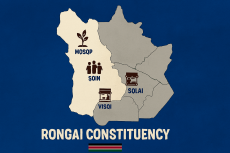- Generation Z is often described as a generation marked by optimism and anxiety. They hope for the future and believe in their ability to effect change.
In his book "The Laws of Human Nature," Robert Greene emphasized the profound influence of one's generation on their identity and worldview.
He described the phenomenon as generational myopia, where individuals become increasingly influenced by the values and ideas of their generation, potentially closing themselves off to alternative perspectives.
This concept holds particularly true for Generation Z, born between the mid-1990s and the early 2010s, as they navigate the complexities of the modern world.
This article explores the viewpoints of older generations on Generation Z and the generational divide that often shapes these perspectives.
One defining characteristic of Generation Z is their unique relationship with technology. Growing up in an era dominated by smartphones, social media, and the internet, Gen Z has seamlessly integrated technology into their lives.
Older generations often marvel at their adaptability and reliance on technology. Gen Z, as digital natives, effortlessly navigate various devices and platforms to communicate, learn, and engage with the world.
However, concerns arise regarding the potential impact of constant digital connection on face-to-face social skills and mental health.
Another notable aspect of Generation Z is their passionate commitment to social and environmental issues. They have emerged as torchbearers of social justice, advocating for causes such as climate change, racial equality, gender equality, and LGBTQ rights.
While some older generations commend their dedication and activism, others may dismiss them as overly sensitive or "woke."
These divergent opinions on social issues highlight the evolving societal norms and values, where what may be perceived as hypersensitivity by some is seen as heightened awareness and empathy by others.
Generation Z also exhibits a strong entrepreneurial spirit. They are more inclined to engage in side hustles, freelancing, and independent business ventures. This entrepreneurial drive stems from necessity and a desire for independence and financial security.
Older generations often appreciate Gen Z's determination and hustle but may be perplexed by their willingness to take risks. The traditional notion of a stable, lifelong job that previous generations aspired to is less common among Gen Z, reflecting the changing nature of work in the modern economy.
In terms of social attitudes, Generation Z embraces diversity and emphasizes inclusivity. They champion the rights of marginalized communities and play a vital role in pushing for changes in policies and cultural norms.
While many celebrate this commitment to inclusivity, some older generations may perceive it as radical or unrealistic. Debates over political correctness and cancel culture often become focal points of generational clashes.
Older generations may argue that these phenomena stifle free speech, while Gen Z sees them as a means to challenge harmful beliefs and behaviours.
Generation Z is often described as a generation marked by optimism and anxiety. They hope for the future and believe in their ability to effect change.
However, they face numerous global challenges, such as climate change and economic inequality. This juxtaposition of hope and anxiety can perplex older generations who may have experienced different societal contexts.


-1770826318-md.jpg)



-1770803686-md.png)

-1770826318-sm.jpg)



-1770803686-sm.png)